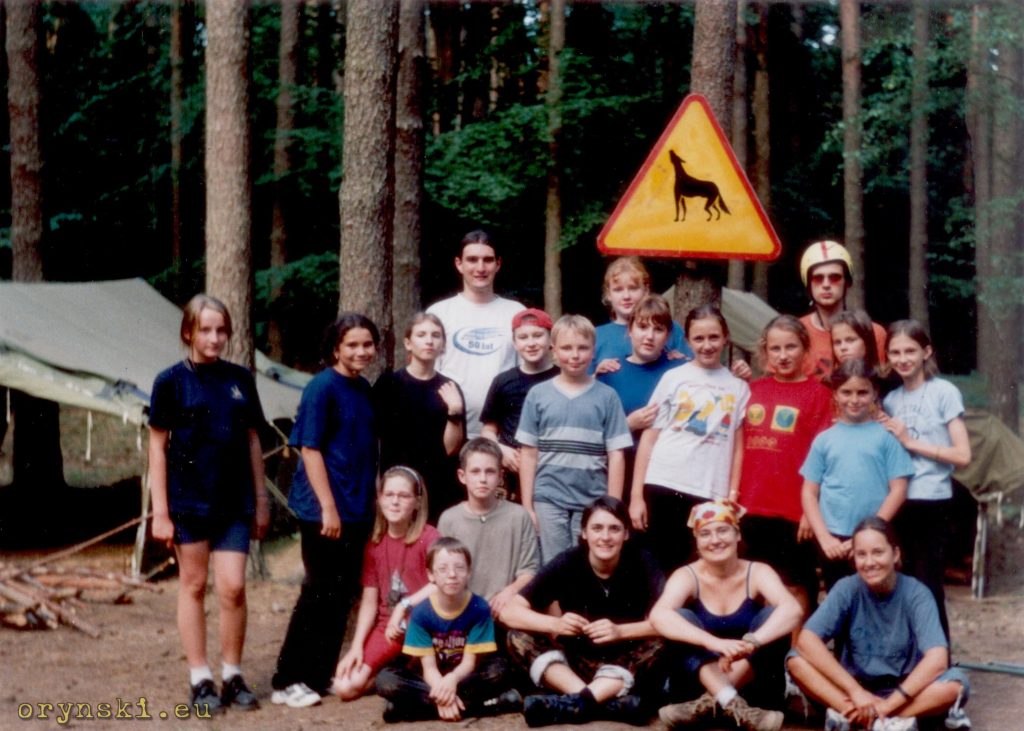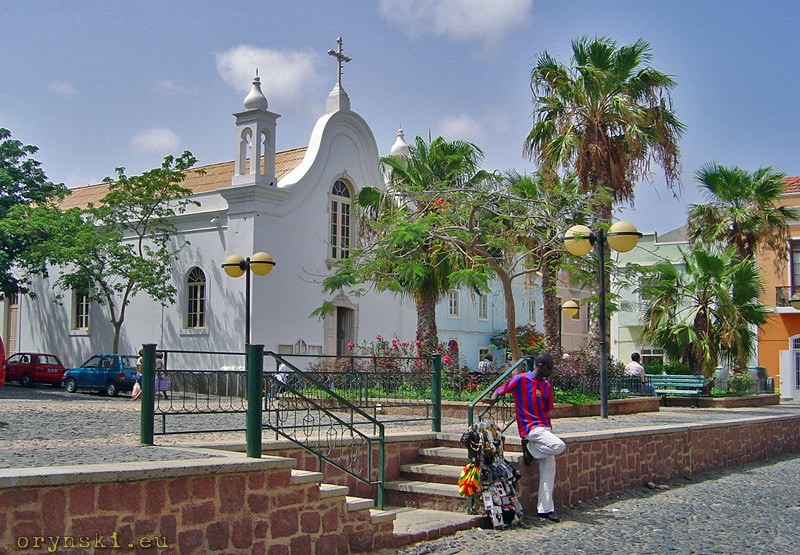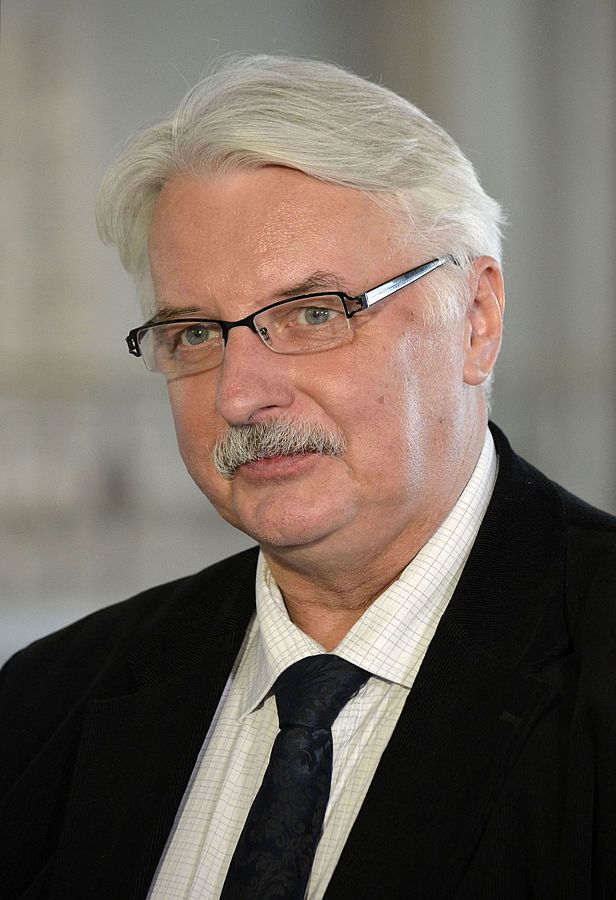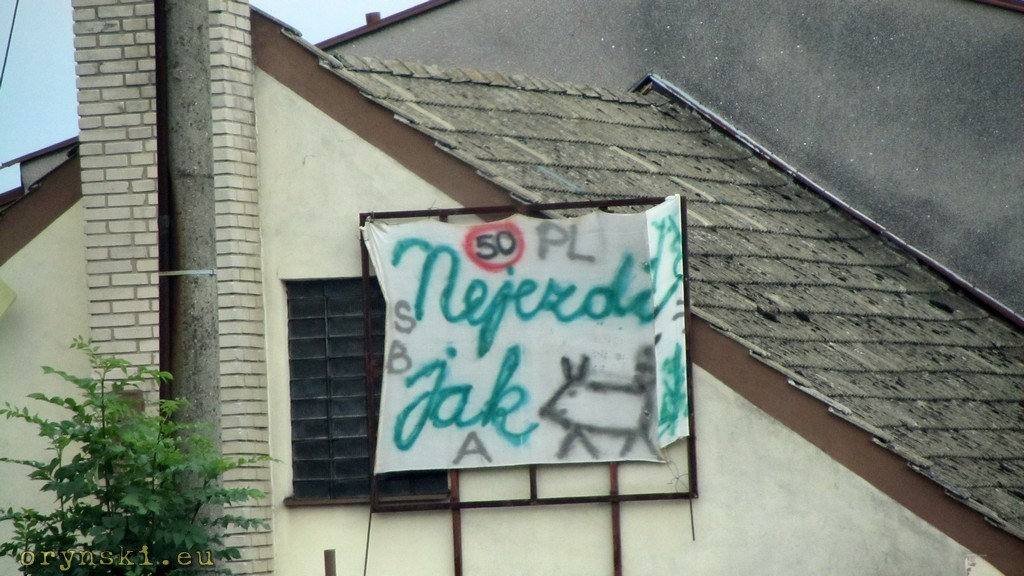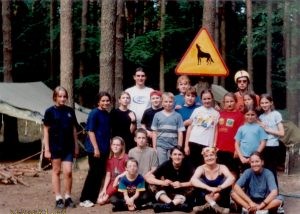
Scouting is great. This is the best adventure that young man can have. One can learn how to be resourceful, how to be responsible for oneself and others and how to cooperate. But – perhaps most importantly – this is where friendships for life are born. My generation already has kids in scouting age and as during every summer holidays, I can hear stories about how Polish scouting looks nowadays all the time. And I can tell you one thing: I feel sorry for today’s Scoutmaster.
The whole idea of Scout camps, created by Robert Baden-Powell himself, is that young people go into the wild for a few weeks in summer and create a self-sufficient community there. Experiences of the founding father of Scouting gathered during the siege of Mafeking convinced him that one can entrust young people with responsible tasks as long, as they are treated seriously. This is why scouts work for the whole year to get a badges proving that they have sufficient skills in practical areas so they can test them during the summer camps.
This is how scouting looked like in Poland till about late 90’s. My first scount camp begun when we got off the bus in the little village in Polish Lubuskie district and from there walked with all our baggage through a forest to a clearing on the bank of the lake. There was a truck, that needed to be unloaded, and then it went off it’s merry way. We ate a quick meal cooked in the ex-military trailer kitchen and went to sleep under the stars between pile of equipment and some wooden perches delivered by the forestry truck. It was only the next morning when we started to construct our camp from scratch, erecting tents and building all furniture.
Our scout mountain hikes often involved us, aged 15 and less, marching in the mud with all our belongings on the back. And don’t think modern ergonomic backpacks – they were a steel-framed style backpacks with spare shoes and mess-tins dangling on the outside, as most of the inside was filled with old-school giant sleeping back. It was all heavy as hell, yet we somehow managed.
For long distance trips we hitch-hiked. Each patrol was split into two-three persons teams and independently tried to get a ride from passing cars and trucks. And you have to remember: this was well before times of smartphones with GPS tracking and Polish road were similar to what you can see today from all those Russian dash cams on YouTube. But someone who never had a pleasure of enjoying panorama of Drawskie lake district from the back of the old Jelcz flatbed lorry will be probably unable to understand why it was worth every discomfort we had to endure…
We were cooking pea-soup on fire to eat it from our ex-army mess-tins that we just washed in the nearby team using sand to scrub off the grease from that meal on the previous day were to end. You could no longer sit a the table made by you and your friends from the perches that were not stripped of the bark. We cooked from ingredients bought from a local farmer and carried to the camp in our backpacks. We had no fridges, we kept our food in the dugout. Everyone had to help – either in the kitchen, bringing supplies, repairing furniture, digging out latrines or keeping guard at night. And we did almost everything by ourselves. Our chief was a retired scoutmaster, and we helped her with everything. Another older companion was fulfilling duty of the lifeguard and a guide, who was a student of nursing was providing first aid when required. But it was too good to last.
Ten years later, as a Scoutmaster, I decided to step down (after ensuring that my scouts are in good hands of course) and leave Scouting altogether. Why? Because camps were ridden by all this health and safety madness.
As it become very difficult to organize a camp in the wild, most of the scouts started to visit the same scout bases for their summer camps. It is a completely different thing to organize a camp for 400 people or more. So to those places several trucks with equipment were arriving weeks in advance. A bunch of hired hands started to assembly the whole camps – tents, furniture, bathrooms etc… Kitchen had to be in brick building, walls had to be tiled and electricity became a must, as potato peelers and dishwasher had to be installed. Kids were no longer allowed to help in the kitchen – peeling potatoes is danger, and apart from that to work in the kitchen you have to obtain a food safety certificate first.
As a result a small campsite popped out next to almost every camp. It hosted all “civilian” team supporting every day operations of the camp: drivers, kitchen staff, lifeguards, bookkeepers, nurses etc. Since most of them had nothing to do with Scouting and treated it as kind of working holidays, drunk voices carried over the camp long into the night.
Traditional latrines, comprising of the hole in the ground, a simple bar to support oneself and a pile of lime to spread over the dump, were forbidden on epidemic grounds. From now on, camps had to hire portable toilets. Those had to be placed in the middle of the camp, as this was the only place where a tanker truck can reach them. After they were emptied, they were usually so dirty, that no sane Scoutmaster would even think of assigning the cleaning task to one of the kids, even as a punishment to the most unruly one. And in the 35C heat those portaloos were turning into some shitty-smelling sauna, so most of the kids in need for number 2 were going to the forest with a shovel – and I don’t blame, as I was doing the same. We were supposed to ban this activity, but actually we limited ourselves to designing a certain area of the forrest as “no-go zones, unless you go for your number 2, but then take shovel with you”.
It turned out as well that mess-tins are not hygienic enough, as kids cannot be trusted with washing them properly (despite that running water is practically a standard in all that scout-bases). Therefore a plastic disposable dishes had to be used instead. Ironically, this was introduced along with the new program of environmental education.
Due to the size of the camp, bin lorry, jet tanker and delivery trucks had to visit daily, causing noise and dust, not to mention of safety implication of the big trucks driving through the area where 400 kids are running around in the forest. When it was raining, they were damaging road completely, making it impassable for smaller vehicles.
Also our old tradition of building walls and gates along the camp – in a style of the ancient Slavic fortresses – was unwelcome. It was beyond comprehension for Health and Safety inspectors: it’s tall, one can fall down, it is designed without approval of the professional engineering bodies and apart from that: to give kids axes, hammers and nails suddenly became a terrible risk.
But forget Slavic fortress. Kids were not allowed even to build their own beds any more. A cot build of wooden perches and rope had to give way to a folding beds as we all know from the Great War movies. Apart from that they were constantly falling apart, I doubt that they were any better for the young people’s spines.
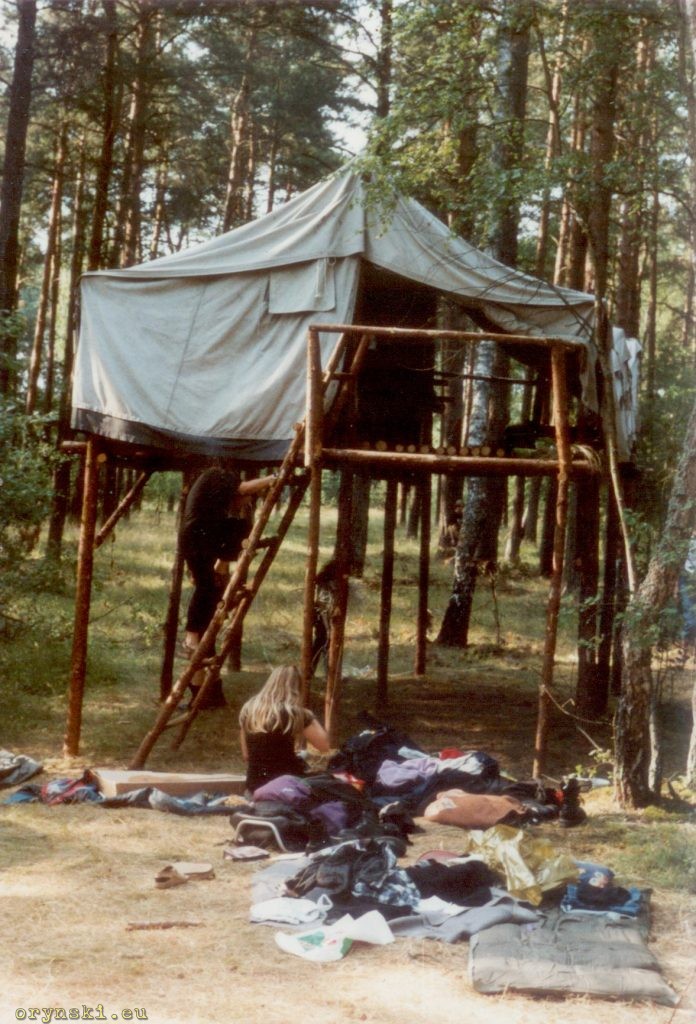
Even traditional totems, usually places in front of patrol’s tents, had drew H&S Nazis attention and we were ordered to remove them. After all, one can harm himself by running into them in the dark.
Camps were no longer allowed to be fenced off with bomas, as it suddenly become a fire hazard. But it was no longer needed, as night stalking was no longer seen as appropriate. Little kids, crawling during the night, to steal a flag from some camp on the other end of the forest? Kids should walk in pairs, and actually if possible they should all wear high visibility vests! The latter actually made a work of scoutmaster hard, as all traditional activities like night runs, strategic games or secretly helping local elderly people was very constrained. Even sports activities were now under scrutiny – how anyone can play football in the forest, between trees where everywhere is full of sharp sticks and harmful pine cones?
And so the whole idea of self-sufficient community of young people was destroyed. Scouts were arrived to an already set up camp and were provided with everything they need apart from something to do. It has become a really hard task for a scoutmaster to keep them from being bored. Eco-education was not so easy any more with that pile of disposable dishes waiting for uplift. Gaining badges become a tricky tasks, if kids were not allowed to the kitchen or to use hand tools – and the idea of spending a night alone in the forest would cause a heart attack of every health and safety supervisor. And what was Scoutmaster supposed to do then? Teach them songs or tell them stories from the history of Polish scouting? Even if he ordered them to count all pine cones in the forest, they could be hit in the head by one falling off the tree and then what?
Of course Scouts are resourceful. As a result organizers of the camps were spending hours looking for loopholes (for example registering camps as three shorter bivouacs in the same localisation), looking through their fingers at many activities of their subordinates, making secret deals with scouts parents and instructing guards, that their main task is now to keep any unannounced Health and Safety inspection at the gate for as long as possible. After all, it takes time for the whole camp to cover their beds with that white linen that some completely out-of-touch H&S person thought to be a perfect idea for a kids spending three weeks in the forest who sleep in their sleeping bags anyway.
In my case the last straw was when money become a problem. This whole circus required money. Someone had to employ all this kitchen staff, buy all this extra equipment, ensure regular removal of rubbish and hire portable toilets with servicing. As a result scout camp’s costs rocketed to a level comparable with other form of holidays. As a result many kids from poorer families were unable to afford it, which was yet another thing that undermined Robert Baden-Powell’s idea that everyone in scouting is equal. The whole idea of scout’s uniforms was to prevent kids from looking at each other’s clothes and seeing who is rich and who is poor. And now the poor ones weren’t able to go to the camp at all…
So obviously some cuts had to be made. And then someone – at least in our regional scout detachments – came with the idea to stop treating scoutmasters as stuff and start seeing them paying customers as well. For many of them it was a problem, as they were already spending a lot of their free time as volunteers working with kids. Many of them, like me, were working students, and we simply could not afford to pay the price of scout camps, even at reduced price. When the choice was between paying 400 zł for a privilege of working hard on the camp and earning 700 as a commercial youth camp carer, money talks. For a working student like me a difference of over a 1000zł was a fortune and commercial youth camp organizers were killing each other to employ such an experienced person as a scoutmaster.
And today it became even harder. Because even though scoutmasters no longer have (so I am told at least) to pay to be able to crown a year of hard work by taking care of the kids for three weeks, they have to face new challenges: politics and new technology.
I was lucky enough to be a Polish Scout when everyone was truly welcome. Today the only allowed text of the oath requires pledge to serve God. So atheists, Muslims and other faiths have no place in modern Polish scouting. On the top of that, Poland is turning right, and the new political elites take special care of education of the children. A patriotic history of Polish scouts, who were heroes during German occupation and Warsaw Uprising is a great base to build right wing propaganda upon this. I recently had a brief reading through some education materials provided to scoutmasters nowadays and I was appalled by their right-wing bias.
At the same time, adult activists of Polish Scouting Association are no strangers to financial frauds, so in recent years several scandals had shaken Polish scouting from local level to it’s HQ’s.
Technology also does not makes scoutmaster’s lives easier. More and more kids become addicted to gadgets, games and Internet. On those camps, that had not decide to introduce no-mobile policy, scoutmaster’s job is more and more like herding a bunch of zombies with they eyes stuck at the little screen. Those scoutmasters who managed to agree no-mobile policy with the parents, suffer from constant ringing of their own phones, as worried mothers have to know right now, if their little Krzyś had his morning poo, and if their sweetheart Amelka’s feet still hurts after she stepped onto pine cone two days ago…
And overprotective parents become a problem of the times we live in. Only recently I witnessed three of my friends, who used to be guides themselves, are at the verge of hystery after sending their kids to scout camps. Seriously? You don’t remember when you were hitchhiking for two days across whole Poland and on arrival refused to call mum, saying that “he is pannicking all the time anyway so I can’t be bothered to go to the village to use phone box, as it will make no difference”? And now you complain that your son hasn’t called you since yesterday? And you, my other friend, remember how you forgot to send a postcard for your parents for the whole three weeks, and you had to sneak out of the train at the second last station before coming back home to drop it into the letterbox? And you now complain that your son is not able to call you every evening?
So the work of Scoutmaster becomes harder and harder. And then remember that this stupid culture of suing everyone for everything is slowly leaiking into Poland from the West… Don’t even get me started on this.
So yes, I am really sorry for today’s scoutmaster. Ok, they say that today the world is different and you have to be more careful than before, but I am not convinced. First, axes, hammers and nails are still the same as they were centuries ago and kids of 12 did not became any clumsier than they were. And the other thing, you know what? They used to say this before as well. And old farts always say “ah, it used to be much better in my times” – of which I am propably the best example. But you know what? Sometimes those old farts might actually be right.
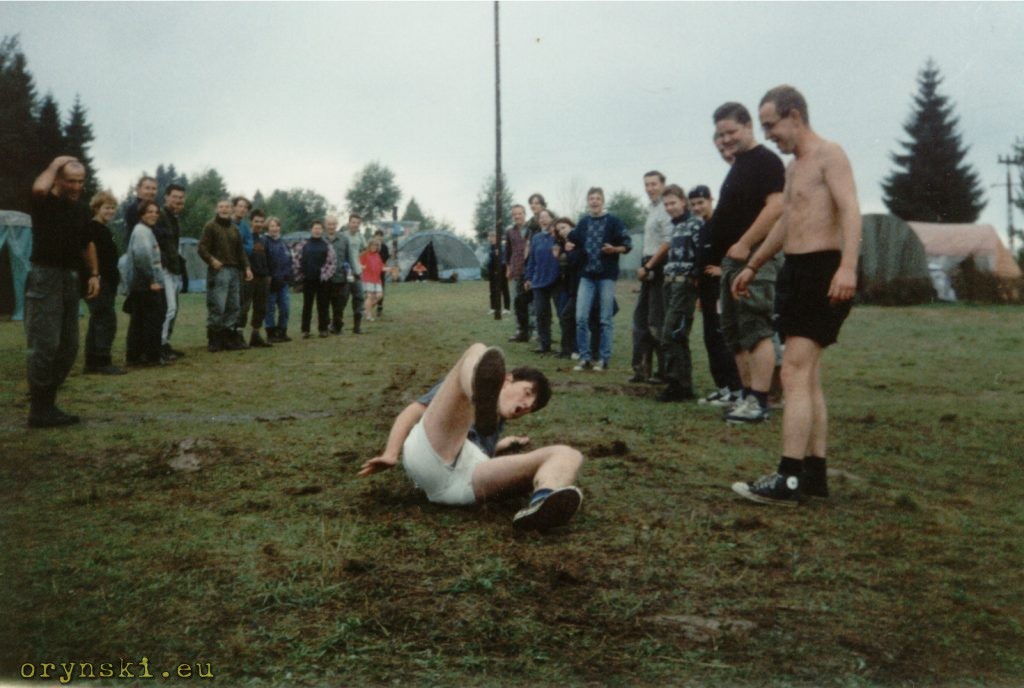
Pictures from my private archive.

